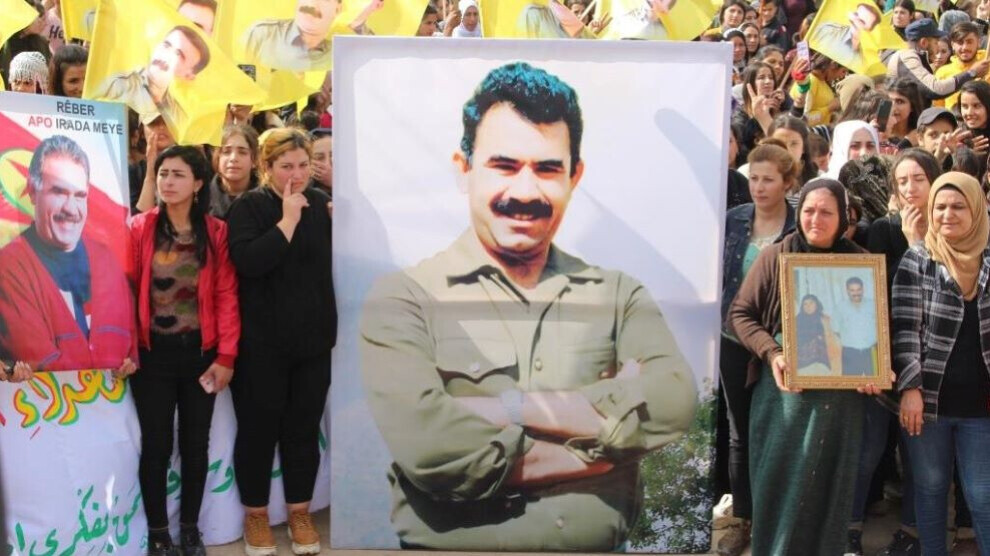Turkey denies "right to hope" for Abdullah Öcalan
According to the European Convention on Human Rights, prisoners must have the prospect of a life in freedom. In the case of Abdullah Öcalan, Turkey is invalidating the "right to hope".
According to the European Convention on Human Rights, prisoners must have the prospect of a life in freedom. In the case of Abdullah Öcalan, Turkey is invalidating the "right to hope".

In the case of Abdullah Öcalan, the "right to hope" is suspended. This was stated by the lawyers of the Republic of Turkey in a submission to the European Court of Human Rights (ECtHR) on 26 August.
On 18 March 2014, the ECtHR ruled that Turkey had violated the prohibition of inhuman and degrading treatment and thus Article 3 of the European Convention on Human Rights (ECHR) by imposing a non-reducible life sentence on Abdullah Öcalan. Öcalan, who founded the Kurdistan Workers' Party (PKK) in 1978, was sentenced to death for "high treason" in June 1999, only four months after his deportation from Kenya to Turkey in violation of international law. Since Turkey abolished the death penalty in 2002, Öcalan must now serve an "aggravated life sentence" without any prospect of early release. According to the ECtHR, however, life sentenced prisoners must at least have the prospect of early release. The sentence must be reducible and subject to review. However, this is not the case with Öcalan and three other political prisoners (Hayati Kaytan, Emin Gurban and Civan Boltan) who successfully appealed to the ECtHR. It is true that the Turkish president can order a prisoner's early release in the event of old age or illness. The Turkish parliament also passes amnesties from time to time. However, this is not sufficient for "lifers" to have a concrete prospect of early release, the ECtHR found.
The 2014 decision paved the way for the submission of five applications to the ECtHR asking Turkey to relax Öcalan's prison conditions, including one against the "aggravated life sentence", which excludes any possibility of release. The so-called enhanced life sentence replaced the death penalty in Turkish law as part of the country's efforts to meet the Copenhagen criteria for accession to the European Union, and coincided with Öcalan's arrest in 1999 and subsequent trial.
After the ECtHR requested an opinion on these applications, Turkey's representatives submitted a document stating that while conditional release is "normally" possible for convicts sentenced to a severe life sentence, certain offences are excluded from this possibility.
Abdullah Öcalan has been isolated in Imrali island prison since 1999. His legal team has had no contact with Öcalan or his three fellow prisoners for over three years. Between 2011 and 2019, lawyers from the Asrin Law Office have not been able to visit the prison island. The last sign of life from Abdullah Öcalan was a brief phone call with his brother on 25 March 2021.